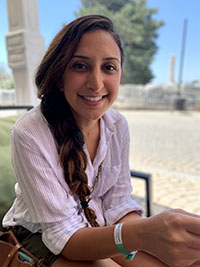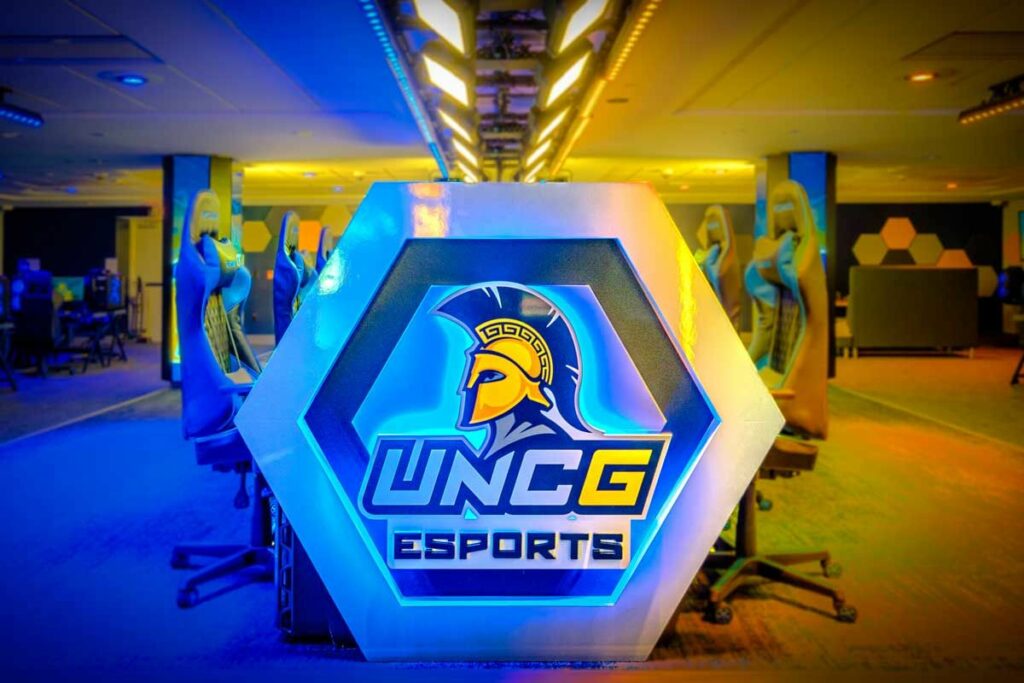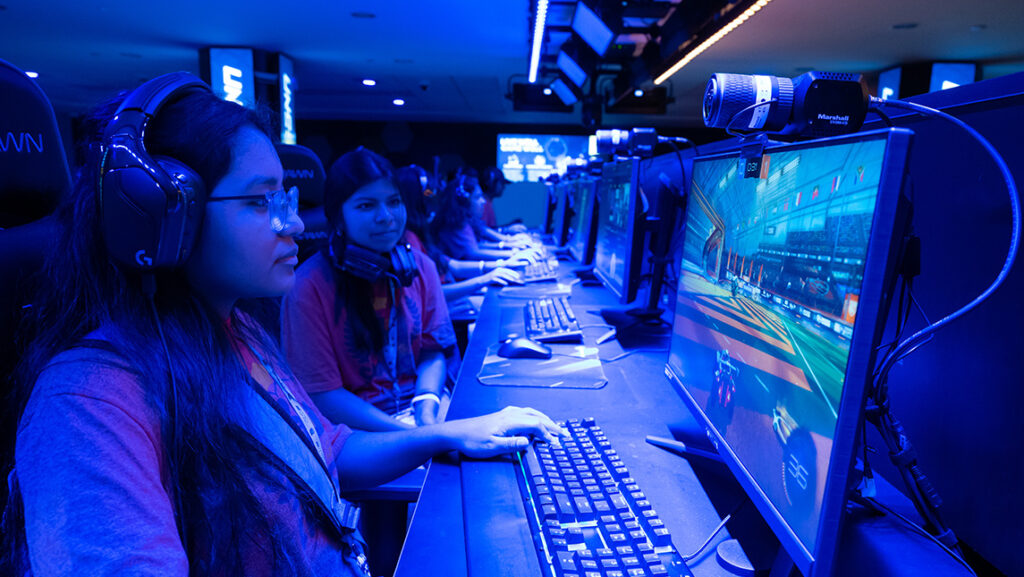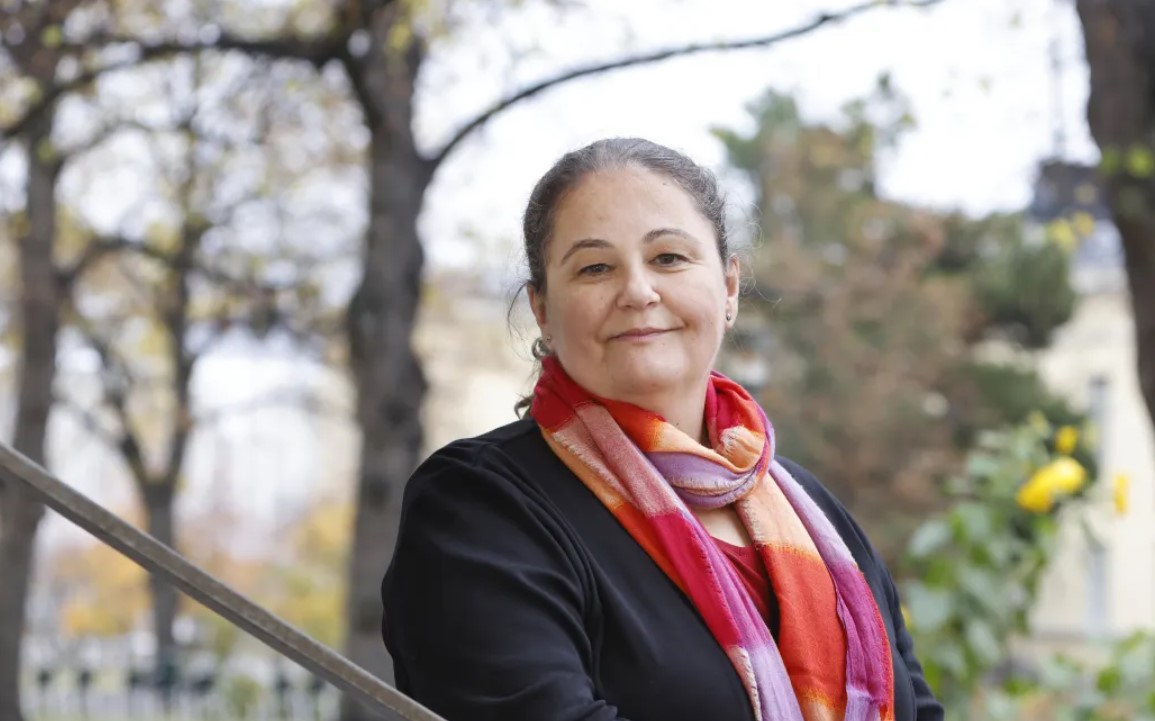Classics Gaming Collaborative
Engaging new points of dialogue across Classical Studies
WELCOME TO CGC!
The Classics Gaming Collaborative (CGC) is sponsored by the UNCG Network for the Cultural Study of Videogaming and represents a collaboration among scholars for engaging new points of dialogue across Classical Studies. Videogames are currently one of the most prevalent forms of Classical reception and, given that the nature of reception has always been a significant measure of cultural change, videogames constitute a valuable asset to supply us with new avenues of thought, innovative research, and interactive learning. At CGC, we believe that the future of Classics is global, plural, and interdisciplinary and that it speaks to the diverse voices of its scholars, students, and community members. Gamers, game-learners, and non-gamers are all welcome alike.
Leadership
Director

AISHA DAD
Aisha Dad is a Lecturer in the Department of Classical Studies at the University of North Carolina Greensboro. She received her PhD in Comparative Literature from Harvard University. She is a scholar of Classical Antiquity and South Asia. Her research focuses on myth and performance as well as Classical reception in children’s literature, animation, and videogames.
She uses videogames especially when teaching mythology to explore representations and distortions of the feminine – from goddess, to witch, to monster.
Ethan Divon, Student Coordinator

As a third-year classical studies major at UNCG, Ethan Divon cares about storytelling. As a gamer, he knows that video games have an unique way of approaching narrative.
Alexis M. Christensen, Associate Professor/Lecturer of Classics, University of Utah
My archaeological research focuses on the creation of identity through the design and decoration of domestic space among the cultures of ancient Italy. I teach courses on Greek and Roman culture, the ancient Greek and Latin languages, and classical reception – including a course on video games and antiquity. As an archaeogamer, I am interested in both the built environments within games and how games adapt ancient Mediterranean culture for a modern audience.
Dr Richard Cole, Lecturer in Digital Classics at the University of Bristol (UK)
Richard’s research focuses on how the history and culture of antiquity intersects with new media, in particular video games, virtual reality, and artificial intelligence. From 2020-2023, he worked on the multidisciplinary Virtual Reality Oracle project, which created a ground-breaking VR experience of ancient divination that aims to improve educational outcomes in schools. He has published widely on video games set in the ancient world, from his article in Games and Culture (2022) on how Assassin’s Creed Odyssey mashups up history and heritage to chapters on how the past is framed in games for the edited volumes Women in Classical Video Games (Bloomsbury 2022) and Paratextualising Games (Transcript Verlag 2021). His forthcoming work includes a special issue for the journal Rethinking History on Virtual Realities as Time Travel, chapters on immersion in Classical Antiquity games and modding historical games, and an experimental piece for the Routledge Handbook of AI and Literature on how questions around the authorship of the Iliad and Odyssey can help us better understand AI generated texts today. Richard also co-directs the Bristol Digital Game Lab at the University of Bristol, a research group dedicated to exploring the nature and impact of games.
Kate Cook, Associate Lecturer in Classics, University of St Andrews
My research interests are the Reception of the ancient world in modern video games, with a particular focus on gender and the representation of women. I co-edited the volume Women in Classical Video Games (Bloomsbury 2022) and contributed a chapter on gender and agency in the mobile game Choices: A Courtesan of Rome. I have forthcoming chapters on the representation of women in the game Expeditions: Rome, and Persephone in video games, and am co-editor of the Routledge Companion to Video Games and History. I have also published on Gender and Language in Greek Tragedy.
Jane Draycott, Lecturer in Ancient History, University of Glasgow
Jane Draycott is a Roman historian and archaeologist. She investigates science, technology, and medicine in the ancient world, and is particularly interested in the history and archaeology of medicine; impairment, disability, and prostheses; and botany and horticulture. Recently, she has begun exploring the use (and abuse) of history and archaeology in video games, particularly those set in classical antiquity. She has also long had a special interest in Graeco-Roman Egypt and the Roman client kingdom of Mauretania.
Andrew Gardner, UCL Institute of Archaeology
Andrew Gardner has research interests in Roman archaeology and archaeological theory, particularly issues of power, identity, and social change. He is also interested in the many intersections of past and present in politics and popular culture, and this has fueled recent research in the archaeology of frontiers and borders, and in the representation of past societies in computer and videogames.
Robyn Le Blanc, Assistant Professor in Classical Studies, University of North Carolina Greensboro
Robyn Le Blanc is an Assistant Professor in the Department of Classical Studies and a member of the Archaeology Program at the University of North Carolina at Greensboro. As an archaeologist specializing in the provinces of the Roman empire, she has done research and engaged in fieldwork across the Roman world, from England to Israel. Her work focuses on the material aspect of stories that Roman communities told about where they came from and who they were, particularly through ancient coinages. She frequently uses gaming—both video and in-person role playing games—in her teaching to explore the past in dynamic ways.
Dunstan Lowe, Senior Lecturer in Latin Literature, University of Kent
Dunstan Lowe’s research includes Ancient worlds in digital gaming, the Ancient Mediterranean in Japanese digital games, Retrogaming, Popular reception studies, Latin literature, Ancient folklore and pseudo-science.
Suzanne Lye, Assistant Professor of Classics, University of North Carolina at Chapel Hill
Suzanne Lye is an Assistant Professor in the Department of Classics at the University of North Carolina at Chapel Hill. Her work focuses on Homer and Homeric Reception, Greek literature and culture, mythology, ancient religion and magic, ancient representations of gender and ethnicity, rhetoric, pedagogy, and classical reception in film. Her first book is on Underworld scenes and the afterlife in ancient Greek and Roman literature. Her current project examines women’s anger and the use of magic. She frequently uses games and gaming—both video and board games—in her teaching as a way to visualize, encounter, and imagine different aspects of the ancient world, such as religion, gender, ethnicity, geography, and daily life.
C. W. (Toph) Marshall, FRSC, Professor of Greek, University of British Columbia
Toph’s research focuses on ancient theater and performance culture, with a particular interest in issues of stagecraft, metatheatre, genre, and audience experience. He has books on Aeschylus’ Libation Bearers, Euripides’ Helen, Aristophanes’ Frogs, and the stagecraft of Roman Comedy. He has also written on the literary representation of slavery and wetnursing, and co-edited volumes on Sex and Slavery, the reception of Greek drama in the Roman empire, and Ennius. His work in classical reception studies has focused on elements of popular culture, including comics, television, and roleplaying games. He is interested in the rules and mechanics of ancient board games and in the representation of the ancient world in modern tabletop board games and rpgs.
Neville Morley, Professor of Classics & Ancient History, University of Exeter, UK
Neville Morley’s research encompases historiography and historical methodology, reception of classical antiquity, ancient economic and social history, pedagogy including games.
Amy Norgard, Associate Professor of Classics, Truman State University
Amy Norgard studies and teaches classes on the classical reception in film, television, and digital and tabletop games. Her scholarship focuses on the physical body and bodily sensations in ancient literature, women in video games set in/around antiquity, and resonances of tragedy in film and television. She is currently working on a project that analyzes how the Star Trek franchise incorporates and reevaluates the myths, literature, and history of the ancient Mediterranean past. Amy’s work embraces how interdisciplinary perspectives can enhance our understanding of the ancient Mediterranean, such as through gaming studies and game design, film studies, codicology, and museum studies.
Christian Rollinger, Reader for Ancient History, University of Trier
Christian Rollinger is Reader for Ancient History at the University of Trier, where he completed his PhD on Roman elite society and amicitia, and his Habilitation on late antique court ceremonial. He has published on the social, economic and cultural history of the late Roman republic and early imperial period, on Hellenistic and Roman monarchic power and courts, as well as pop culture receptions of the ancient world, especially in video games (most recently, (ed.) Classical Antiquity in Video Games: Playing with the Ancient World, London: Bloomsbury 2020). He is currently preparing the manuscript of his next book on late antique court ceremonial for publication in 2024.
Natalie J. Swain, Assistant Professor, Acadia University
Natalie’s research interests include Latin elegy, narratology, and philology, as well as the reception of the ancient Mediterranean world in modern comics, manga, and video games. Her reception work often takes a theoretical approach, engaging with comics or games studies, narratology, and feminism, anti-imperialism, and anti-racism. After she completes her first monograph on comics studies and Latin elegy, she intends to expand her research into the impact of ancient ideas of the Polar Regions in Ameri-European literature from the 17th century.
Roger Travis, Associate Professor of Classics, Departments of Literatures, Cultures, & Languages and Digital Media and Design, University of Connecticut
Roger Travis’ research interests include narrative games as epic performance, reception of adventure games as humanistic inquiry, game performance as mimesis, cooperative card games, and digital RPGs.
Alexander Vandewalle, PhD Researcher, University of Antwerp & Ghent University
Alexander Vandewalle is a Joint PhD Researcher at the University of Antwerp (Department of Communication Studies) and Ghent University (Department of Literary Studies) in Belgium, where he studies the characterization of Greco-Roman gods and heroes in video games. He holds an MA in Linguistics & Literature: Latin & Greek from Ghent University (2017), and an MSc in Film Studies and Visual Culture from the University of Antwerp (2018). He has previously published and/or presented on characterization in video games, game analysis methodology, players’ experiences with historical video games, various topics related to the reception of the ancient world in games (including mythology, aesthetics, intertextuality, epigraphy, pedagogical applications, and haptic feedback), and broader media franchises (Star Wars, Marvel Cinematic Universe). His work has been published in Games and Culture, International Journal of the Classical Tradition, and Game Studies. He is also the creator of Paizomen (www.paizomen.com), a work-in-progress database of video games set in classical antiquity, and co-hosts regular archaeogaming livestreams on Twitch with the Save Ancient Studies Alliance.
Kevin Wong, PhD Student in Classical Philology, Harvard University
Kevin Wong is an interdisciplinary scholar of classical antiquity and videogames. His research aims to unpack the new media afterlife of ancient Greece and Rome—above all, the evolution of ‘epic’ into a framing ideology of gaming entertainment. He is currently pursuing his PhD in Classical Philology at Harvard University, with a Secondary Field in Science, Technology, and Society.
His studies focus on (1) the worldbuilding potential inherent to the epic, rhetorical, and historiographical traditions of Greco-Roman literature; (2) the entrenchment of this historical imaginary within the game industry’s creative, commercial, and sociotechnical path dependencies; and (3) the ideological continuities between ancient narrative and modern entertainment, and how they shape our contemporary visions of fantasy, immersion, and fun.
Apollodorus Project Internship
CGC’s Apollodorus Project is partnering with other platforms globally such as Paizomen to create a comprehensive pedagogical database and future search engine for Classical Antiquity and Videogaming.
Meet our Interns!
Sophie Johns, University of Bristol
Hi there! I’m Sophie, and I’m one of the interns working on the Apollodorus Project. I have recently completed my BA in Classics at the University of Bristol, and I’m really excited to work with the CGC this summer. My interest is ancient Greek mythology, specifically how women contribute to and are presented within myths (my undergraduate dissertation, ‘Chick Lit: The Personality of Female Narratives in Ancient Greece’ explored female transmission of mythological narratives). During my internship, I’m excited to investigate how female characters especially are depicted in classical videogames.
Aydaen Markowski, Acadia University
My name is Aydaen Markowski and I am an undergraduate student majoring in Classics at Acadia University in Nova Scotia. I have always been interested in Classics ever since I was a kid, specifically the ancient Greco-Roman religions that are still widely known and popular today. I believe that Classics is still very much prevalent today in many ways that people do not realize. How many stories have been influenced by ancient Greek epics? How many movies have been made about ancient Rome? I am finding out every single day how Classics impacts the modern world and it never gets old every time I am able to make a subtle connection to classical antiquity. That is why I am so interested in what I do and why I am always excited to advance my studies in any way I can. Other than that I enjoy playing with any dog or any pet that crosses my path because I was never able to have one as a kid. And I unironically enjoy taking long walks on the beach any time I can, usually at sunset because I like being dramatic and I watch too many movies.
Upcoming Events
Fall 2024
CGC Emerging Scholar Workshop
Call for papers will go out in Fall 2024.


FALL 2024
Semi-Annual Gaming Lab and Lecture
Details coming soon
In the meantime, check out “Building a Really Epic Deck in Marvel’s Midnight Suns” from Dr. Roger Travis (March 2024):
Past Events
March 14, 2024
Building a Really Epic Deck in Marvel’s Midnight Suns
Semi-Annual Gaming Lab and Lecture led by Dr. Roger Travis
Dr. Travis discussed the roots of deckbuilding — of both the analog and the digital varieties — in oral recompositional epics like the Homeric Iliad and Odyssey. When you optimize your deck of hero moves in 2K’s Marvel’s Midnight Suns, as Travis will try to persuade you, you’re doing something a lot more epic than you know!


October 11, 2023
VIDEOGAMING AND ASIAN MYTHOLOGY
Lecture by Xenia Zeiler, University of Helsinki
Mythological narratives, names, and symbols figure intensively in video games. Elements of Asian mythology, including but not limited to Buddhist and Hindu mythology, have been included in games produced in different world regions – in and beyond Asia – since the early days of video game production. This talk discussed prominent examples and also touched upon specific challenges and methods for researching these themes.
More about CGC
Mentorship Program and undergraduate Research
CGC’s mentorship program aims globally to connect undergraduate and graduate students with established scholars in the field. If you are interested in connecting with a mentor in your area of research or if you would like to be a mentor please contact Aisha Dad.
Undergraduate Research Projects
“Expanding Classics: Comparative World Mythology and its Reception in Gaming,” Ethan Divon (UNCG, Class of 2025).
Conferences & Workshops:
- “Expanding Classics: Comparative World Mythology and its Reception in Gaming.” 2023 SNCURCS, Wingate University, NC. November 2023.
- “Expanding Classics: Comparative World Mythology and its Reception in Gaming.” 2023 NCHA Conference, Remote. November 2023.
- “Expanding Classics: Comparative World Mythology and its Reception in Gaming.” SoCon Undergraduate Research Forum, Spartanburg, SC. October 2023.
- “Expanding Classics: Comparative World Mythology and its Reception in Gaming.” International Academy for the Study of Gaming and Religion’s Study of Gaming and Cultural Values Summer Graduate School Workshop, Greensboro, NC. July 2023.
Awards:
- NCHA Conference 2nd Place Lecture Prize
Pedagogy
CGC is currently developing a series of remote and hybrid pedagogical workshops and resources.
NCSV Funding and Grants
Funding and grants for faculty are available through the Network for the Cultural Study of Videogaming. Please contact Aisha Dad for inquiries and additional information.
UNCG Esports Arena Facility Use
Use of UNCG’s Esports Arena is available to outside institutions in collaboration with CGC. Please inquire for details about the fee structure and reservations.

105 Foust Building
P.O. Box 26170
Greensboro, NC 27402